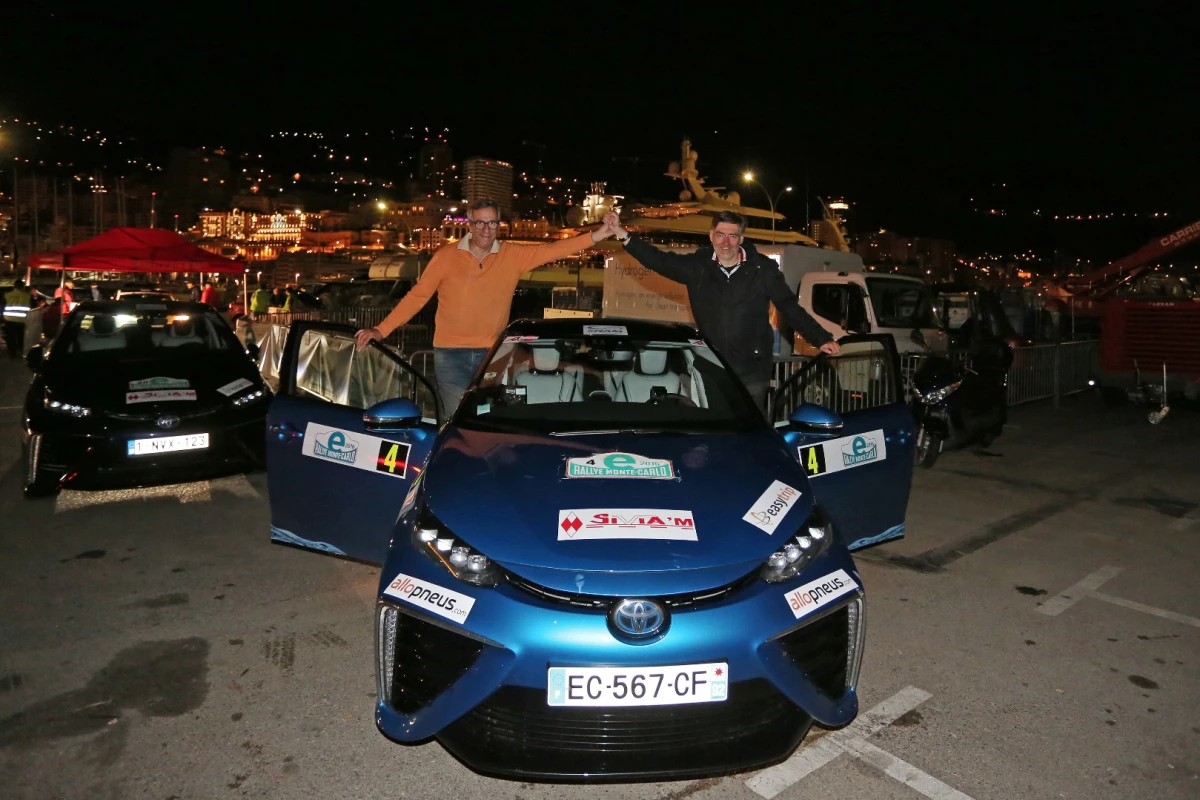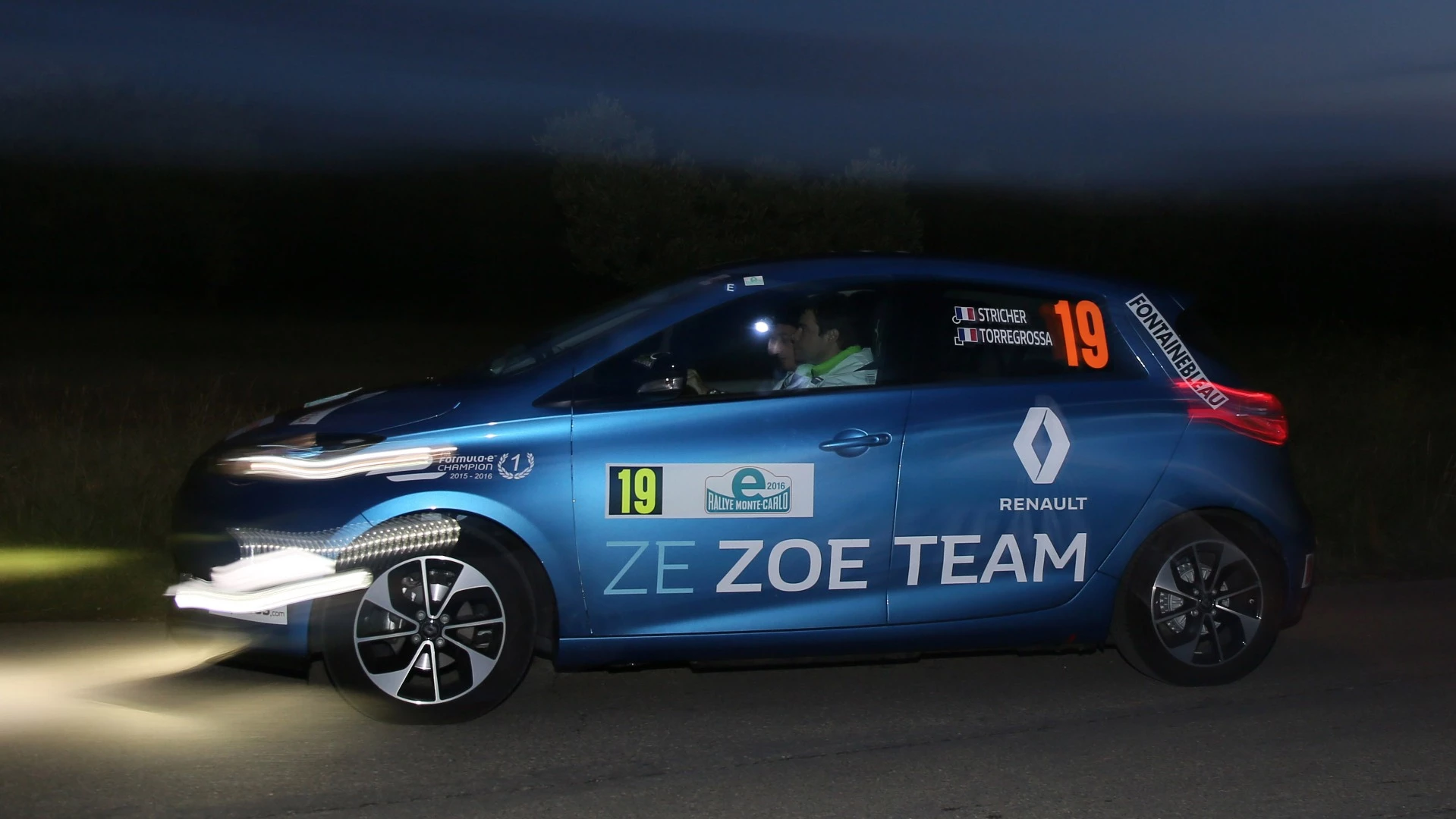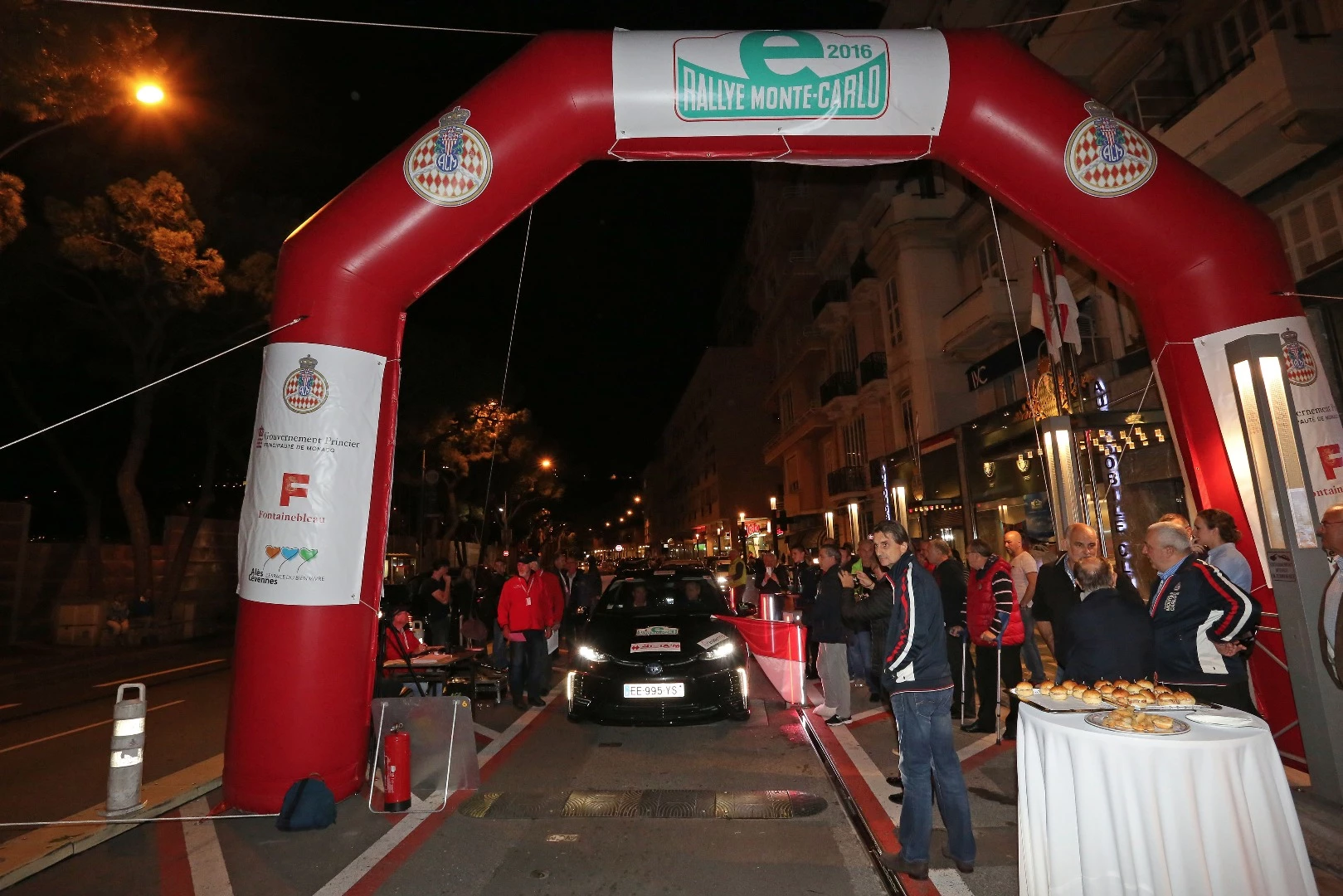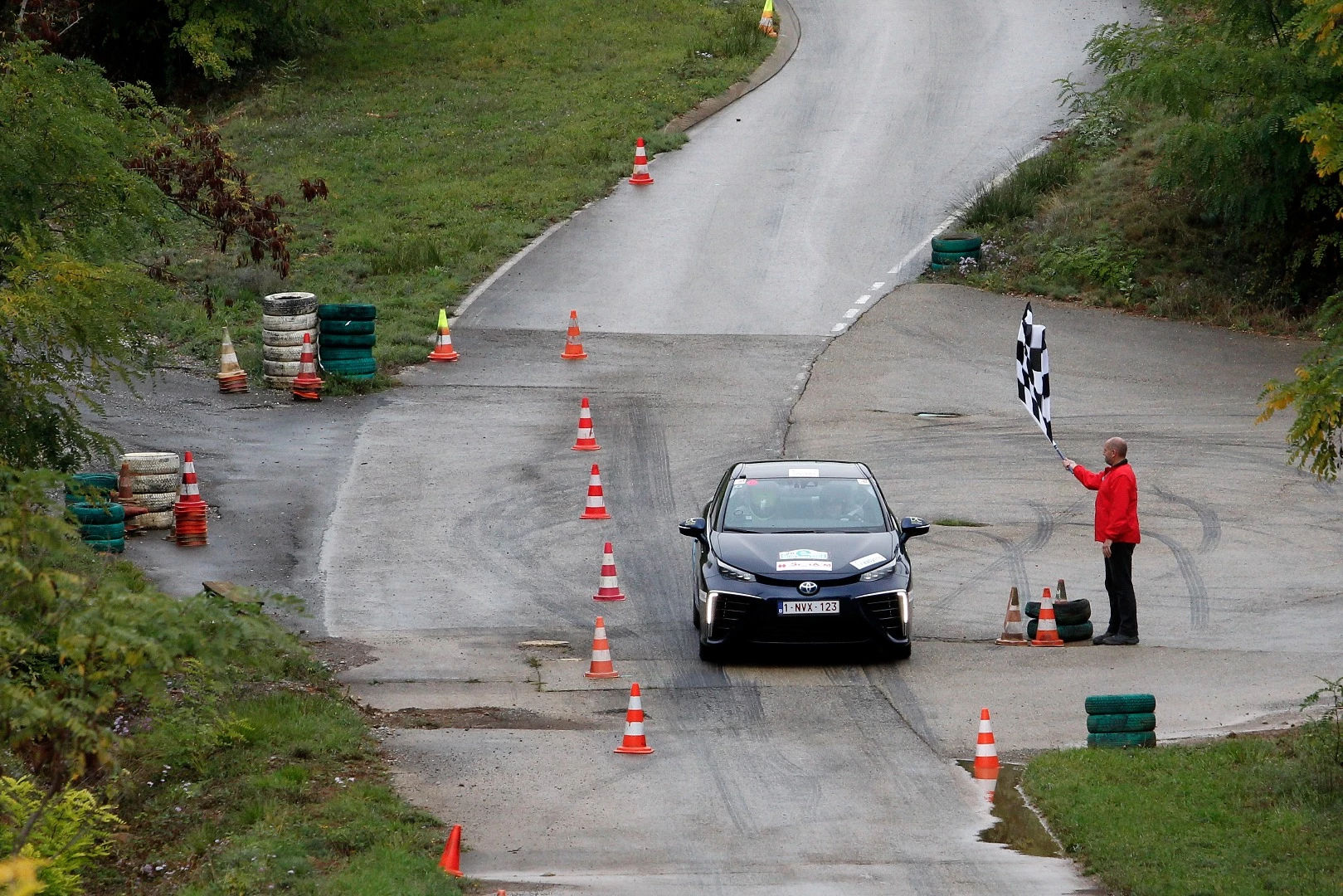Just as production cars competed in "reliability trials" and city-to-city races 100 years ago to demonstrate their reliability and speed to the public, the inaugural 1,000-km (621-mi) E-Rally Monte Carlo held this week is serving the same purpose for production zero emission vehicles ... and the winner of the event was the Toyota Mirai fuel cell vehicle of Artur Prusak & Thierry Benchetrit, which took victory from two Renault Zoes, a BMW i3 and a Kia Soul.
Three Toyota Mirai fuel cell vehicles were entered and they finished first, sixth and 11th of the 31 finishers, with the only other hydrogen fuel cell vehicles in the field being the three battery-electric Renault Kangoo vans, using fuel cell range extenders from Symbio Fcell. Though the Kangoos didn't feature at the front of the field, they did finish the event.
Apart from those six hydrogen fuel cell powered vehicles, the other 29 entrants were all battery-electric vehicles, with entrants including the Renault Zoe, Nissan Leaf, Citroen Berlingo, Volkswagen E-Up, Volkswagen E-Golf, Tesla Roadster 2.5, Tesla S, Kia Soul and BMW I3.

Of the battery-electric vehicles, the Renault Zoe performed the most impressively, with first place (Christophe Ponset & Serge Pastor), second place (Alexandre Stricher & Michael Torregrossa) and fifth (Greg & Yves Munier) in its class. The Renault's results are equally as impressive as the Toyota Mirai's across the three entrants for each vehicle: Toyota being first, sixth and eleventh outright, while Renault finished second, third and seventh outright. Using a Formula One point-scoring system, the Renault trio would take the team award.
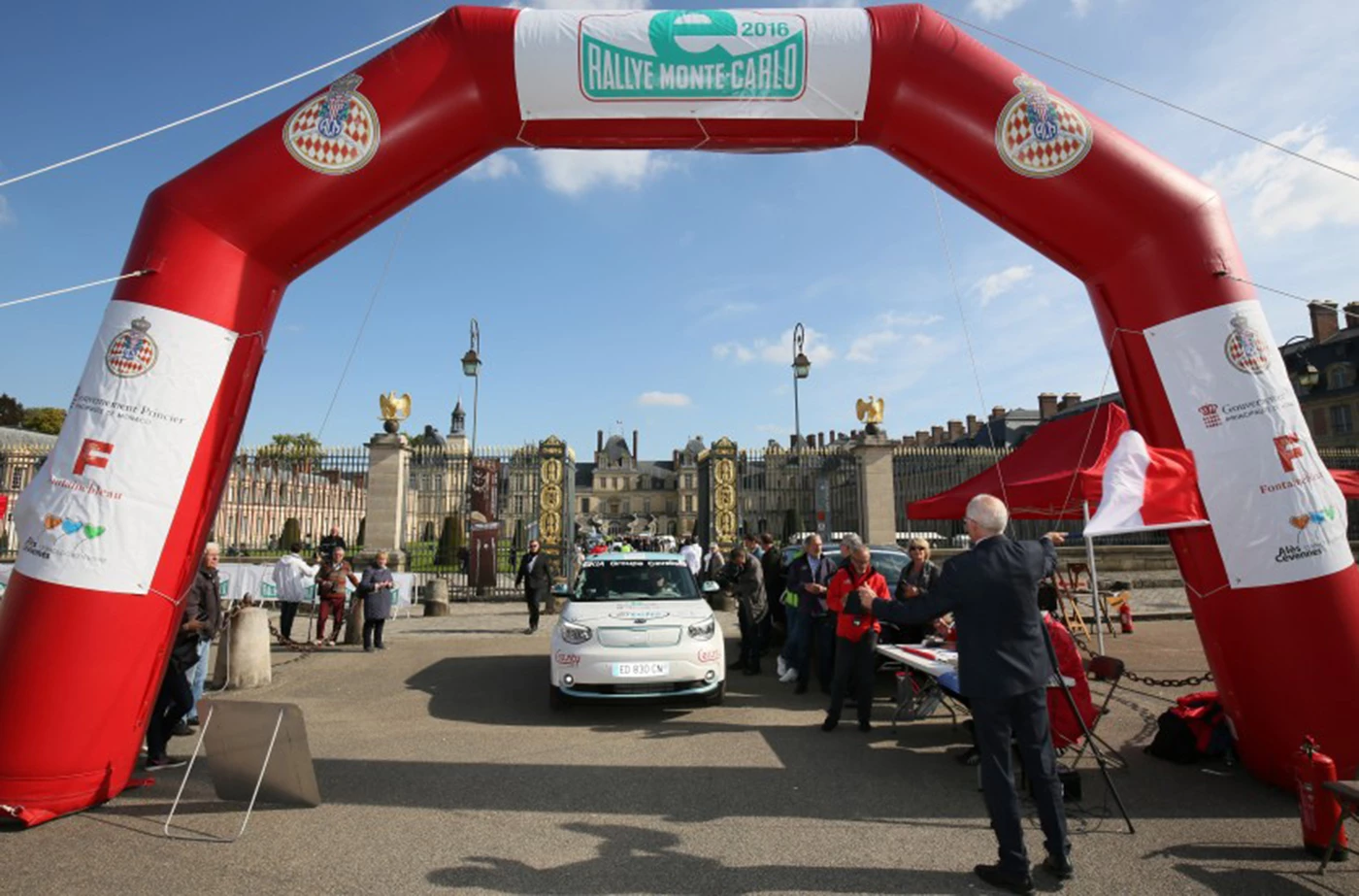
Just as the pioneers of the historic Rally Monte-Carlo did in it's first event in 1911, the E-Rally starters began a considerable distance from the Principality of Monaco, with the start line being in the 12th Century Palace of Fontainebleau (above) some 950 km away.

Winning driver Artur Prusak and co-driver Thierry Benchetrit are shaping as the pairing to beat in this type of event, having already won the FIA Alternative Energies Cup in 2015 and 2016, as well as the Monte-Carlo New Energies Rally in 2013 (in a Toyota Prius).

Indeed, Prusak's knowledge of the intricacies and the pair's ability to monitor and optimize all the key variables in the performance/economy equation is quite obvious from the above picture taken inside the Mirai.
"We are thrilled to have won because it is the first time in history a rally of this size has been organized for zero-emission cars and we have achieved a world first with a fuel cell-powered competition car," Prusak said.
"The Toyota Mirai ran perfectly for the whole circuit," Benchetrit added. "It is comfortable, powerful and performed as well on the motorway as it did on the winding roads of the regularity sections. We found its driving range can exceed 500 km."
The third Mirai, entrusted to a crew of French journalists, took 11th place and would have undoubtedly done better had it not been for a navigation slip-up in the first regularity zone, as it performed consistently in the later stages.
The Toyota Mirai is currently on sale in Germany, Denmark, the United Kingdom, Sweden, Norway, Belgium and The Netherlands, as well as selected markets in the United States.

